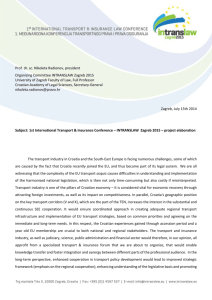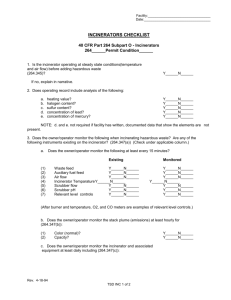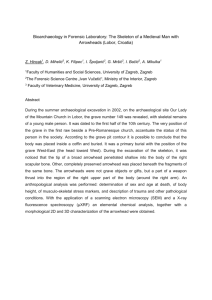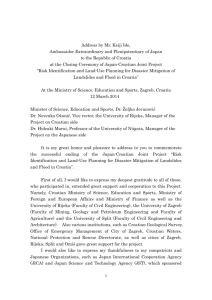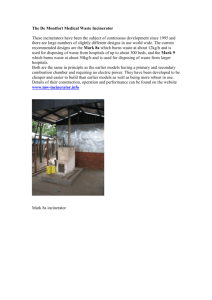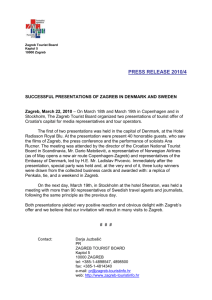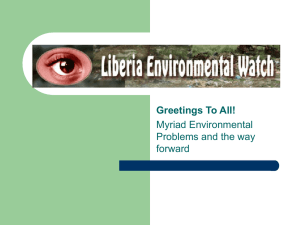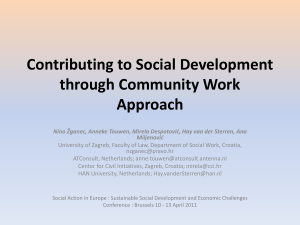Zagreb municipal solid waste incinerator, Croatia
advertisement
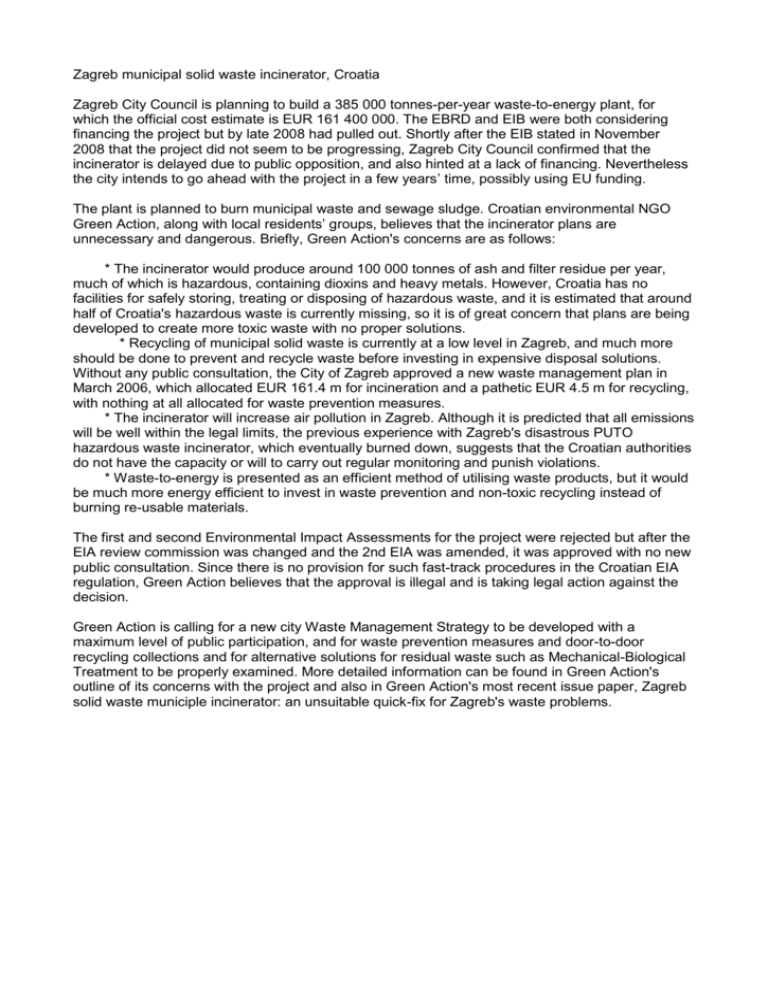
Zagreb municipal solid waste incinerator, Croatia Zagreb City Council is planning to build a 385 000 tonnes-per-year waste-to-energy plant, for which the official cost estimate is EUR 161 400 000. The EBRD and EIB were both considering financing the project but by late 2008 had pulled out. Shortly after the EIB stated in November 2008 that the project did not seem to be progressing, Zagreb City Council confirmed that the incinerator is delayed due to public opposition, and also hinted at a lack of financing. Nevertheless the city intends to go ahead with the project in a few years’ time, possibly using EU funding. The plant is planned to burn municipal waste and sewage sludge. Croatian environmental NGO Green Action, along with local residents’ groups, believes that the incinerator plans are unnecessary and dangerous. Briefly, Green Action's concerns are as follows: * The incinerator would produce around 100 000 tonnes of ash and filter residue per year, much of which is hazardous, containing dioxins and heavy metals. However, Croatia has no facilities for safely storing, treating or disposing of hazardous waste, and it is estimated that around half of Croatia's hazardous waste is currently missing, so it is of great concern that plans are being developed to create more toxic waste with no proper solutions. * Recycling of municipal solid waste is currently at a low level in Zagreb, and much more should be done to prevent and recycle waste before investing in expensive disposal solutions. Without any public consultation, the City of Zagreb approved a new waste management plan in March 2006, which allocated EUR 161.4 m for incineration and a pathetic EUR 4.5 m for recycling, with nothing at all allocated for waste prevention measures. * The incinerator will increase air pollution in Zagreb. Although it is predicted that all emissions will be well within the legal limits, the previous experience with Zagreb's disastrous PUTO hazardous waste incinerator, which eventually burned down, suggests that the Croatian authorities do not have the capacity or will to carry out regular monitoring and punish violations. * Waste-to-energy is presented as an efficient method of utilising waste products, but it would be much more energy efficient to invest in waste prevention and non-toxic recycling instead of burning re-usable materials. The first and second Environmental Impact Assessments for the project were rejected but after the EIA review commission was changed and the 2nd EIA was amended, it was approved with no new public consultation. Since there is no provision for such fast-track procedures in the Croatian EIA regulation, Green Action believes that the approval is illegal and is taking legal action against the decision. Green Action is calling for a new city Waste Management Strategy to be developed with a maximum level of public participation, and for waste prevention measures and door-to-door recycling collections and for alternative solutions for residual waste such as Mechanical-Biological Treatment to be properly examined. More detailed information can be found in Green Action's outline of its concerns with the project and also in Green Action's most recent issue paper, Zagreb solid waste municiple incinerator: an unsuitable quick-fix for Zagreb's waste problems.
